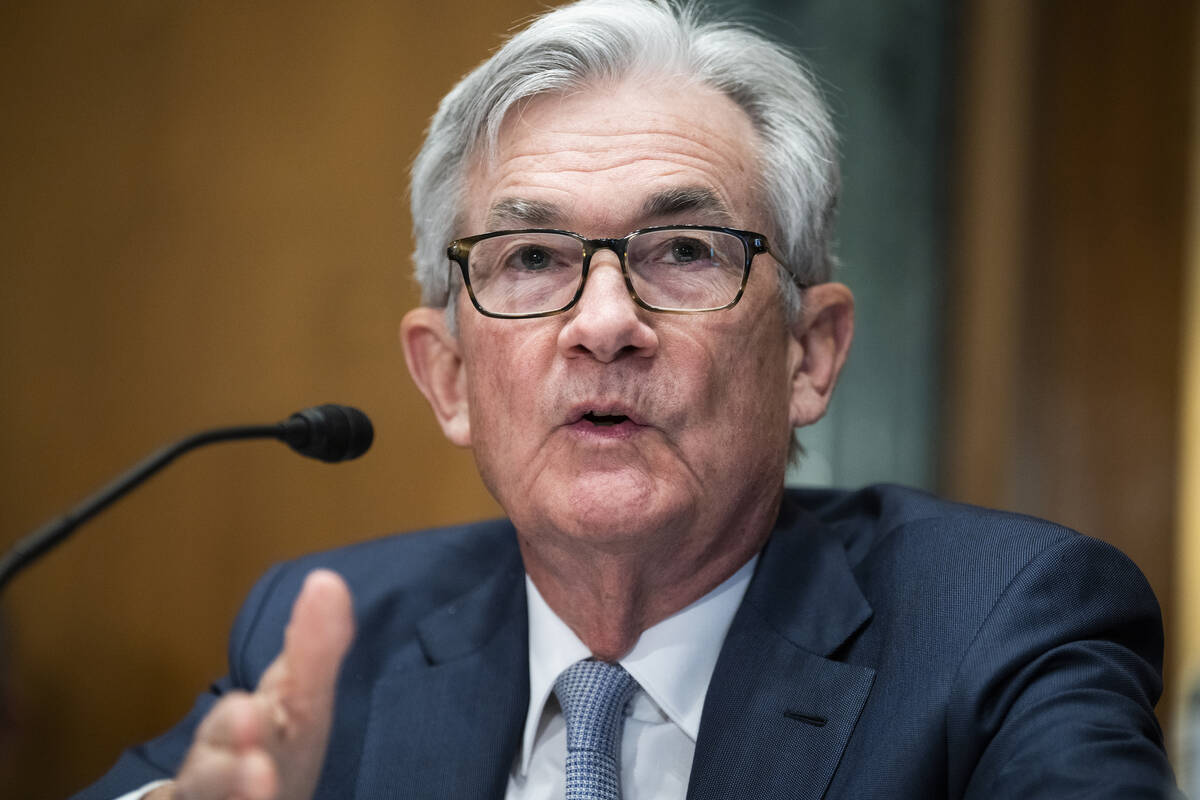Fed raises key rate to fight inflation, signals more increases to come
WASHINGTON — The Federal Reserve launched a high-risk effort Wednesday to tame the worst inflation since the 1970s, raising its benchmark short-term interest rate and signaling potentially up to seven rate hikes this year.
The Fed’s quarter-point hike in its key rate, which it had pinned near zero since the pandemic recession struck two years ago, marks the start of its effort to curb the high inflation that has followed the recovery from the recession. The rate hikes will eventually mean higher loan rates for many consumers and businesses.
The central bank’s policymakers expect inflation to remain elevated and to end 2022 at 4.3 percent, according to updated quarterly projections they released Wednesday. That’s far above the Fed’s 2 percent annual target. The officials also now forecast much slower economic growth this year, of 2.8 percent, down from its 4 percent estimate in December.
Chair Jerome Powell is steering the Fed into a sharp U-turn. Officials had kept rates ultra-low to support growth and hiring during the recession and its aftermath. As recently as December, Fed officials had expected to raise rates just three times this year. Now, its projected seven hikes would raise its short-term rate to 1.875 percent at the end of 2022. It could increase rates by a half-point at future meetings.
Fed officials also forecast four additional hikes in 2023, boosting its benchmark rate to 2.8 percent. That would be the highest level since March 2008. Borrowing costs for mortgage loans, credit cards and auto loans will likely rise as a result.
Powell is hoping that the rate hikes will achieve a difficult and narrow objective: Raising borrowing costs enough to slow growth and tame high inflation, yet not so much as to topple the economy into recession.
Yet many economists worry that with inflation already so high — it reached 7.9 percent in February, the worst in four decades — and with Russia’s invasion of Ukraine driving up gas prices, the Fed may have to raise rates even higher than it now expects and potentially tip the economy into recession.
By its own admission, the central bank underestimated the breadth and persistence of high inflation after the pandemic struck. Many economists say the Fed made its task riskier by waiting too long to begin raising rates.
Since its last meeting in January, the challenges and uncertainties for the Fed have escalated. Russia’s invasion has magnified the cost of oil, gas, wheat and other commodities. China has closed ports and factories again to try to contain a new outbreak of COVID, which will worsen supply chain disruptions and likely further fuel price pressures.
In the meantime, the sharp rise in average gas prices since the invasion, up more than 60 cents to $4.31 a gallon nationally, will send inflation higher while also probably slowing growth — two conflicting trends that are notoriously difficult for the Fed to manage simultaneously.
The economy’s steady expansion does provide some cushion against higher rates and more expensive gas. Consumers are spending at a healthy pace, and employers keep rapidly hiring. There are still a near-record 11.3 million job openings, far outnumbering the number of unemployed.

















